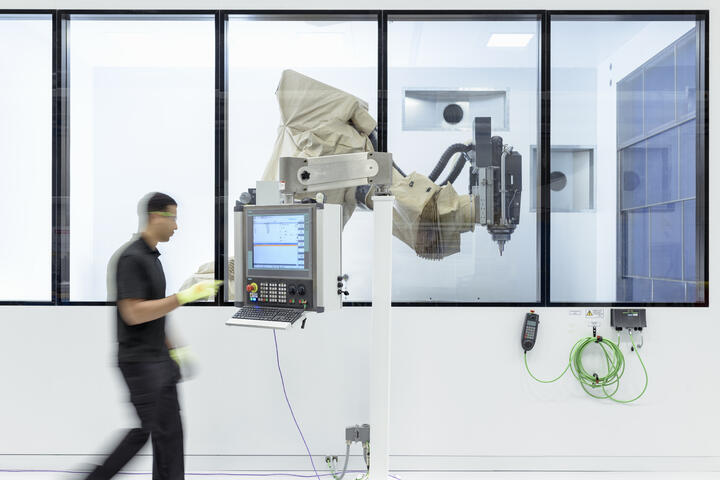Network launched to boost innovation
06 September 2022A new £6.75 million national network to accelerate UK innovation is being led by the University of Sheffield, supported by a senior research fellow from the AMRC.
The Innovation Launchpad Network+ will bring together leading universities, the Catapult Network and regional innovation ecosystems to enrich the exchange of ideas and knowledge across these organisations. It has been funded by the Engineering and Physical Sciences Research Council (EPSRC).
The network is a national collaboration, led by the University of Sheffield with the Universities of Leeds, Strathclyde, Warwick, Bristol and Exeter, and the Catapult Network. There are currently nine Catapults, each established by and working in partnership with Innovate UK. They support businesses across healthcare, energy, emerging technologies and manufacturing in transforming great ideas into valuable products and services.
To foster new links between individuals or groups and the Catapult Network, the programme will deliver 100 world-class Researchers in Residence programmes and will focus on the themes of net zero, healthcare and wellbeing, and resilience.
The programme builds on the successful Catapult Fellows and Researcher in Residence programmes and aims to create a truly inclusive and integrated science-innovation community.
Dr Peter Osborne, senior research fellow at the University of Sheffield Advanced Manufacturing Research Centre (AMRC), is leading the network. Dr Osborne, who plays a leading role in developing the AMRC's technology strategy as part of its research team, said: “It’s truly an honour to have been asked to lead the network and I look forward to working with all of the stakeholders to make it happen, driving innovation and knowledge through our collaborations.”
Professor Ash Tiwari, faculty director of research and innovation for engineering at the University of Sheffield, is a co-investigator in the network. He said: “This network will open up new collaboration opportunities, particularly in areas where there are currently limited links between academic researchers and Catapult centres. As a previous awardee of this scheme, I look forward to supporting and mentoring new applicants.”
Matthew Durdy, chair of the Catapult Network and CEO of the Cell and Gene Therapy Catapult, added: “We welcome this important initiative which strikes right at the heart of our aim to build a collaborative research, development and innovation landscape."
The programme will support two complementary pathways for research residencies, both of which aim to place the right researcher in the right Catapult at the right time. The first pathway will support residencies that contribute directly to delivery of the Catapults’ strategic roadmaps, which are near-term industry needs.
The second aims to leverage the capability of the Catapults to accelerate the translation of science in partnership with higher education institutions (HEIs) and regional innovation ecosystems, which can include other non-Catapult research and technology organisations (RTOs) and incubators.
“Catapults and academia working together will provide first-class knowledge exchange and a launchpad to bring researchers closer to innovation in industry, giving them valuable exposure to the translation and commercialisation of research.” Matthew Durdy, Chair of the Catapult Network and CEO of Cell and Gene Therapy Catapult.
Applications for the Researcher in Residence scheme will open in October. Additional funding for travel and feasibility studies will also be available to support the co-creation of research residencies. The Innovation Launchpad Network+ includes previously successful academics, who will offer their support and mentoring to new applicants.
An online event is being held from 12pm-2pm on Thursday October, 6 2022, where researchers can find out more about the Innovation Launchpad Network+ and the opportunities provided by the Researcher in Residence scheme.
To register for a ticket, please visit: Eventbrite

